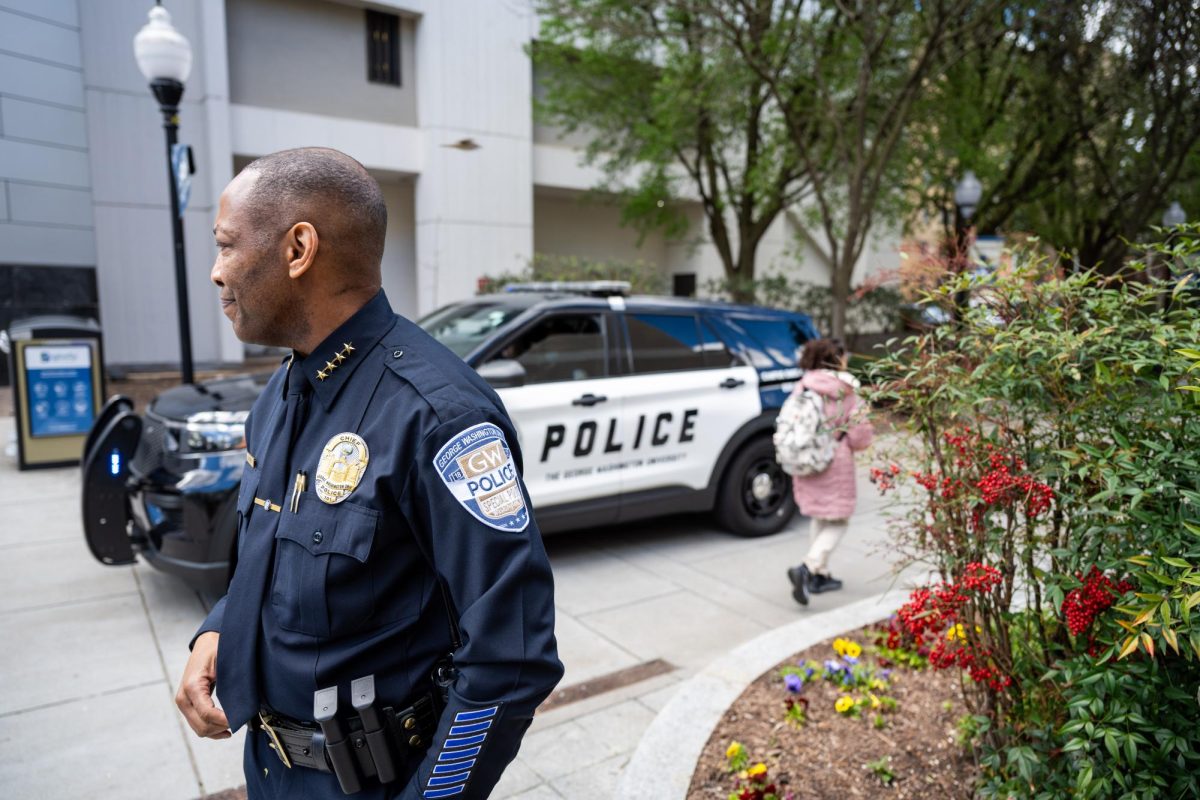A panel of experts in politics discussed the results of the Democratic presidential primary contests Tuesday at the Jack Morton Auditorium Thursday.
The journalists and campaign advisers discussed the results of the Super Tuesday contests, which took place on March 3, after which U.S. Sen. Bernie Sanders, I-Vt., and former Vice President and U.S. Sen. Joe Biden, D-Del., emerged as the frontrunners for the Democratic presidential nomination. About 100 people attended the event, which was held by the School of Media and Public Affairs in association with GW College Democrats and College Republicans.
Steve Scully, a C-SPAN senior executive producer and SMPA Terker Distinguished Fellow, moderated the event.
Robert Costa, a national political reporter for The Washington Post and a political analyst for NBC News, said Sanders has garnered a large following while running as a democratic socialist. But he said it remains to be seen whether Democratic voters will give Sanders a greater share of the electorate or whether they will turn to Biden, who Costa described as a “pillar of the Democratic Party.”
“He has created from the fringe of the fringe of the left wing in American politics a national movement and the Democratic Party right now is reckoning with that movement,” Costa said.
He added that the race is “far from over” even though the field has narrowed down to Biden and Sanders.
“March is a critical month for both of these candidates, for the whole Democratic Party and as a voter, I can step back and really believe we are living through history,” Costa said.
Karen Finney, a SMPA Terker Distinguished Fellow and a former campaign advisor to failed candidate for Georgia governor Stacey Abrams and failed presidential candidate and former Secretary of State Hillary Clinton, said Sanders’ revolutionary narrative will be a “harder sell” to the broader voter population.
She said Sanders’ self-identified status as a democratic socialist is susceptible to a generational divide – older generations are more likely to view the term as negative relative to younger voters. Finney added that the priority of most Democratic voters is to beat Trump but the unfavorability associated with the label may dissuade some voters if Sanders wins the nomination.
“I’m not sure revolution is going to get us where we’re trying to get to,” Finney said.
Mercedes Schlapp, the senior campaign adviser for the Trump campaign, said political polarization in the United States prevents politicians from working together to protect civil liberties like freedom of speech and religion, hallmarks of American democracy.
“What I think has been sad to see is so much of the polarization – you see it in the media, and you see it in the political parties, where people can’t talk to each other anymore to find common solutions,” Schlapp said.
She said Trump and Pence ran a “skeleton” campaign in 2016 but the team’s infrastructure, which she called “the army of Trump,” is stronger now. Schlapp said their campaign organizers are still running the race as if they are the race’s underdogs, despite their “very strong” position.
“You never run like you’re winning, you always have to run like you’re the underdog because you never know what’s going to happen day to day,” Schlapp said. “But I think for us, as you all have mentioned, the president is a political warrior, and he’s a very effective communicator, and he knows how to drive the news narrative.”




